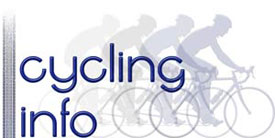I’m both an economist and a cyclist. I don’t think there is much correlation. I rarely see an economist who is a cyclist or a cyclist who is an economist.
The great Fausto Coppi was asked by a young cyclist for some advice on how to become a great cyclist. The response of Fausto Coppi was ‘ride a bike’
This is the beauty of cycling – it’s essential a simple activity accessible to people of all ages. Anyone can jump on a bike and turn the pedal. But, by and large economists are not so keen on simplicity. We prefer complicated theories which seek to explain why things are and why things are not as we predicted they would be.
Here are some views on cycling from an economist. In particular a look at how cycling is under consumed in a free market.
Positive Externalities and Social efficiency.
Cycling creates external benefits to the rest of society. These external benefits include:
- Reduced congestion. Bikes take up much less space than cars. Compare a Chinese city like Beijing from the 1970 (when everyone used to cycle) and now when traffic jams are inevitable.
- Bikes do not cause fatal accidents to other people. Cyclists die on the road, but, they don’t cause fatalities to other road users. Therefore, cycling is safer than than car use. Cyclists cause cars to slow down (in theory) to bypass. They act like natural speed checks. Lower car speeds saves car use.
- Cycling does not create pollution. Pollution from cars and buses damages air quality in cities and contributes to global warming. Cycling rather than driving makes a significant contribution to lower pollution levels.
- Cycling makes a significant contribution to a healthier society. Cycling improves physical health and helps reduce problems such as obesity. Obesity imposes significant costs on national health resources.
- Cycling does not wear down the roads like lorries and cars. Because of heavy use by lorries and cars, roads need replacing every 6-7 years. If the roads were only used by cyclists they could last for 20-30 years. Therefore, there would be less road works which are both expensive and cause traffic jams.
- The external costs of driving are very high. The eternal benefits of cycling are very significant; It is hard to place an exact monetary figure on a combined external benefit. But, the above points show they are much higher than most people would estimate.
The problem is that when people make decisions on how to travel they do not take into account external benefits. If other people will benefit from lower congestion and pollution it is not really a reason for you to cycle. If you excuse the pun it’s the classic ‘free rider problem’ – Everyone would like to reduce congestions, so long as they are free to drive.
Therefore, in a free market cycling will be underconsumed. – The Social benefit is greater than the Social Cost. Cars by contrast will be overconsumed because people ignore the negative externalities.
The solution? Well an economist would suggest that cycling should be subsidised. If cycling to work gives society an external benefit of say £10 a week. This is what the government should subsidise to achieve the socially efficient level of output. In practise there are practical difficulties with subsidising cycling. However, if we are aware that cycling should be encouraged there are many options available to increase cycle use.

No comments yet.